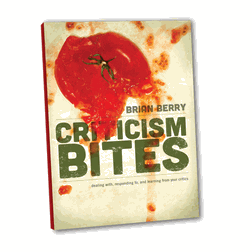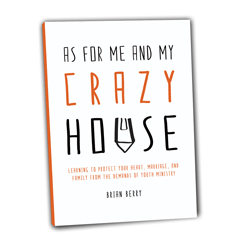My students are growing up in, and largely contributing to, a Biblically Illiterate world. By that I mean, a large portion of the “American Christian” population, simply does not read their Bible regularly.
There are lots of reasons for this I’m sure, but at least one is the assumption that they “already know what it says.” How can that be you ask? Well, because they assume the Bible is a list of moral do’s and don’ts and proclamations that are still essentially the moral fabric of much of the judeo-christian based laws in our country. In addition, they listen to politics and news casts and they hear the religious representatives of the faith getting upset about this or that, and they assume they know what it teaches by reverse reading into their responses.
Perhaps the most obvious way my students think they know is because they come to church from time to time and have heard a “proclamation” based sermon in which we read a passage of the Bible and tell them what it says. I don’t think teaching or proclamation or instruction are wrong… it is part of what the Bible does. It also however is not the whole of it. There is history and poetry and story and hyperbole and parables and way more teaching styles than simply proclamation inside.
But, for one reason or another, proclamation still is the dominate theme in churches and even in my student large group weekend gathering… and in my pursuit and passion to teach students how to think and not what to think, I’m increasingly aware that it is not the only style needed.
I have also decided, proclamation does not work when teaching sexuality.
So, in an effort to put my money where my mouth is, this last sunday we risked the accusation that we will be labeled wishy washy and avoided “telling students” what the Bible says on several issues. It was the second weekend in our series we’ve titled “FLIRT” and it was titled “Flirting with feelings”. We discussed the classic, “If it feels good, do it” mindset and the “If you want it, try it” realities of our culture.
We challenged students to think through 2 grids. The first had to do with sexual feelings and the second had to do with questions to ask about them. We proposed that while all urges are real, not all should be honored. We challenged students to evaluate their sexual desires and to put them into one of 3 categories:
- Desires we should fuel. Like a wedding night, they are God given and God granted.
- Desires we should starve. Like a wrong way sign, they are godless and lead to sexual and spiritual regret.
- Desires we should delay. Like a yield sign, they are neither right or wrong. They are God given desires, but not God granted for action today.
- What does the Bible say about this urge? Who cares what I say or you say or so and so says, can you as a God-fearing young adult, point to what the Scripture says to support this sexual conviction you’re living by?
- What does logic bring me to? Does my theory even hold water? Is it logical to consider a thing called “oral sex” to not be “sex” and if so, why or why not? We challenged students to be thinking young adults.
- What does a Godly couple in my life say? We challenged students to wrestle with their convictions about sexuality with a couple whose relationship they observe reflects God honoring characteristics they want in their own romantic relationships. Wise people seek wise advice.
- What can I learn from a general observation of the experiences of others? I think there are 2 ways to learn things in life. One is the hard way, the other is from those who learned it the hard way. Wisdom says don’t be the next guy to have an affair, go to someone elses school of hard knocks and save yourself a world of regret.
 Husband. Dad to 5. Student Ministry Pastor. Follower of Jesus. Yatta yatta.
Husband. Dad to 5. Student Ministry Pastor. Follower of Jesus. Yatta yatta.



I think it’s genius and the students are going to walkaway with a lot more on their mind than if they just listened to a sermon telling them what they should/shouldn’t be doing. Some may not have liked it because they’re lazy (like me) and want to just get the simple yay or nay on things but oh well for us… We need these kind of thought provoking, soul searching questions asked the most. Well done Bri- your passion for youth never ceases to amaze me.
I wouldn’t call it ‘wishy washy’… I would refer to it as ‘exactly what the doctor ordered’. You’re dead-on in the diagnosis of a Biblically illiterate world. And I think you’re also right in the sense that proclamation as the dominate form of teaching is losing the battle. Consider the following:
1. Students are “proclaimed at” all day in school. What makes me think they are able to be “proclaimed at” in youth group for another 40 minutes?
2. According to my brilliant teacher-wife, only 10-15% of the total population is able to hear and digest information when it’s given in proclamation form. So what happens to the other 85-90%?
3. You and I both know that students are less and less likely to respond to something that is said to them. They need to be shown in real life or allowed to discover it on their own.
I’d love to share some ideas sometime about this. I see our ministry beginning to move away from as much proclamation that we do to something more fruitful.
Thanks for the words.
-Jason Wigand
What you are doing, and I commend you for it, is helping the students construct a theology of sexuality, using essentially the “Wesleyan quadrilateral”. You are walking them through the process of putting 4 sources of theology together – scripture, reason (logic in your terms), church tradition (in this case the local church tradition /their own Christian community’s example), and culture/experience. This leads to a practical and meaningful conception of how God wants us to operate in life – an actual theology.
Constructive theology is a task the church has not abandoned but is not real good at, and that is essentially what you are doing. Of course, you don’t have to tell anyone this, because it might turn them off. But I am convinced, as are most theologians, that without such endeavors, there is no meaningful and substantive living Christian witness.
Keep on fighting the good fight.
Nick
thanks friends. Look at that Nick.. me and Wesley go way back. Who knew our old Methodist days would be so relevant 🙂